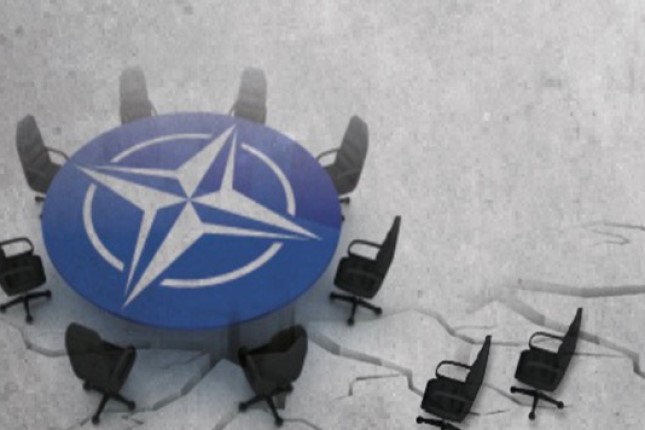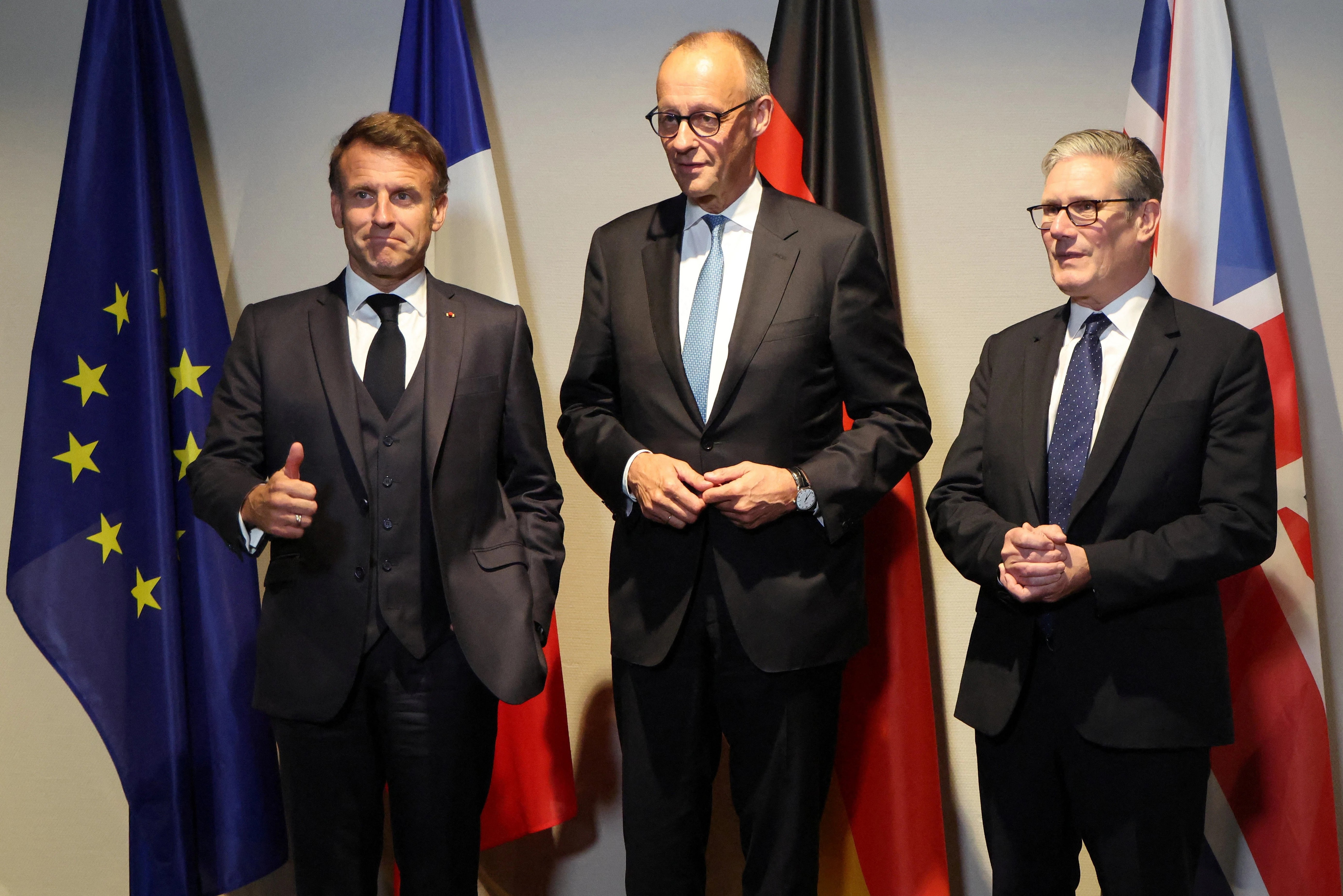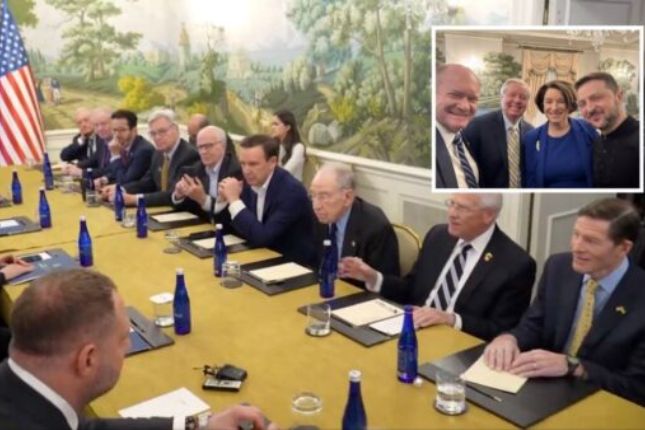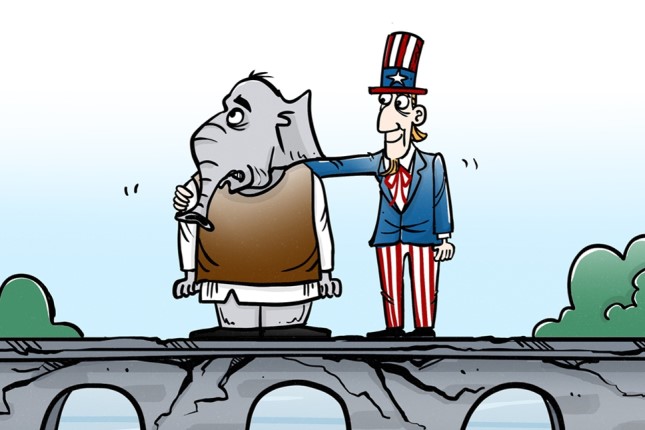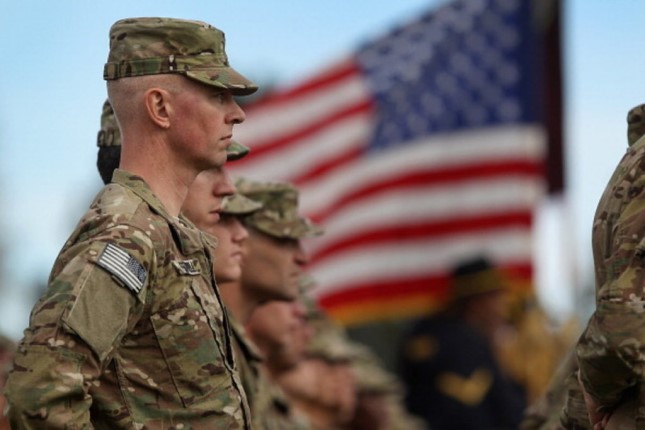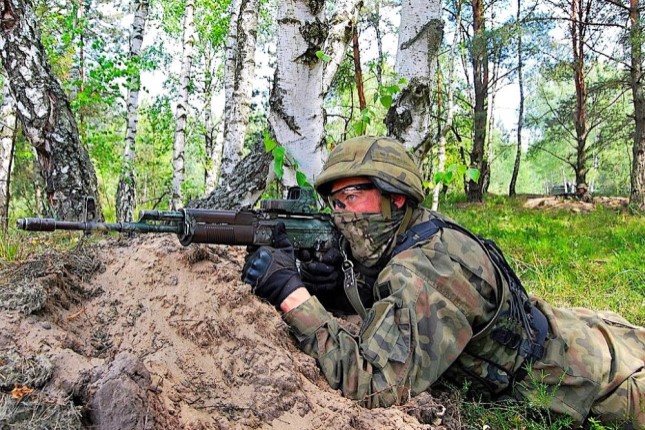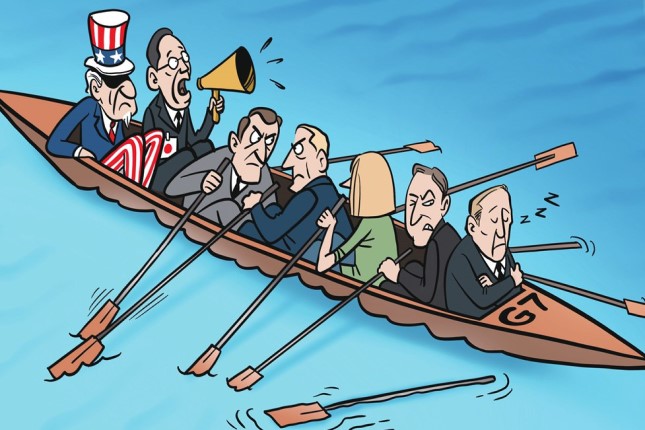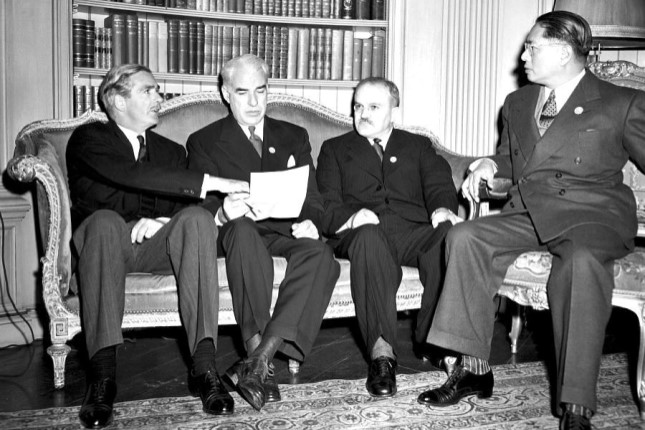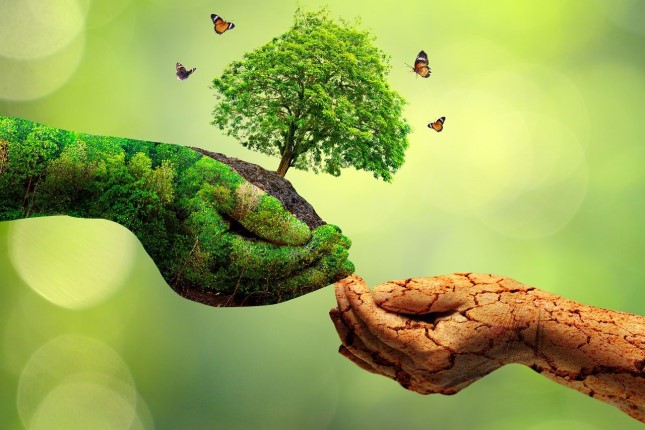NATO is reportedly finalizing Ukraine's membership recommendations during the bloc's foreign ministers' meeting that began on Tuesday, a move analysts said is akin to dangling a carrot in front of Ukraine, to pull it closer to the West when support from the EU and the US has become slack, and to ensure solidarity within the EU as the Palestine-Israel conflict absorbs more worldwide attention.
A meeting of NATO Ministers of Foreign Affairs is scheduled for Tuesday and Wednesday at the bloc's headquarters in Brussels. While addressing NATO's support for Ukraine, NATO Secretary General Jens Stoltenberg said on Monday that NATO members will agree on recommendations for reforms Kiev must implement to gain membership of the alliance during a NATO-Ukraine meeting, according to media reports.
US Assistant Secretary of State for European and Eurasian Affairs James O'Brien was quoted in an Associated Press report as saying that US Secretary of State Antony Blinken, who will be at the NATO meeting, would emphasize the alliance's continued support for Ukraine. In recent weeks, the Biden administration has been preoccupied with the Palestine-Israel conflict.
As the European Commission recommended opening EU membership negotiations with Ukraine, NATO also hopes to send a signal through this foreign ministers' meeting by finalizing the recommendations for Ukraine's priority reforms and to offer Ukraine a "commitment," Cui Hongjian, a professor with the Academy of Regional and Global Governance with Beijing Foreign Studies University, told the Global Times.
On November 8, the European Commission adopted the 2023 Enlargement Package, providing a detailed assessment of the state of play and the progress made by several countries and for the first time, Ukraine. Although Ukrainian President Volodymyr Zelensky hailed the recommendation as a "historic step" for Kiev's road to the EU, many European media pointed out that Ukraine still faces an uphill climb to join the bloc, including more domestic reforms, and the EU itself also has questions about its future.
In order to demonstrate support for Ukraine at a time when the US and EU's concrete aid has waned, the EU and NATO both wish to promote Ukraine's accession process. Also, they fear that pro-Russia forces in Ukraine may retake influence and flip the current situation once Ukraine has lost faith in the West and the EU, said Cui Hongjian.
Moreover, by expressing "unwavering support" to Ukraine, NATO and the EU want to maintain a unified stance among member countries toward the Russia-Ukraine conflict, said the expert.
As the conflict between Russia and Ukraine has stalemated and the US has struggled to back Ukraine, doubts and criticism of the EU's approach toward Ukraine have risen within the EU and splits have widened between the US and the EU, analysts said.
At the beginning of October, top EU diplomat Josep Borrell called on US lawmakers to reconsider their decision to omit financial support for Ukraine from a stopgap budget bill the US Congress passed to halt a federal government shutdown.
As the Russia-Ukraine conflict has continued for more than 600 days, Zelensky has been reportedly struggling with increasing war fatigue in the West, admitting that the Palestine-Israel war is "taking away the focus" from the conflict in Ukraine.
The West has been depleted by the Russia-Ukraine crisis because they have poured so much cash, resources and weapons into it. They also worry that their security and stability might be impacted by the continuous conflict between Israel and Palestine and the possibility of a conflict in the Asia-Pacific region, Cui Heng, an assistant research fellow from the Center for Russian Studies of East China Normal University, told the Global Times.
Cui Heng noted that the West's support to Zelensky is waning, but its general direction to support Ukraine has not changed, aiming to facilitate its post-war strategy.
But currently, all commitments made to Ukraine are lip service, said the expert.
Source: The Global Times.
